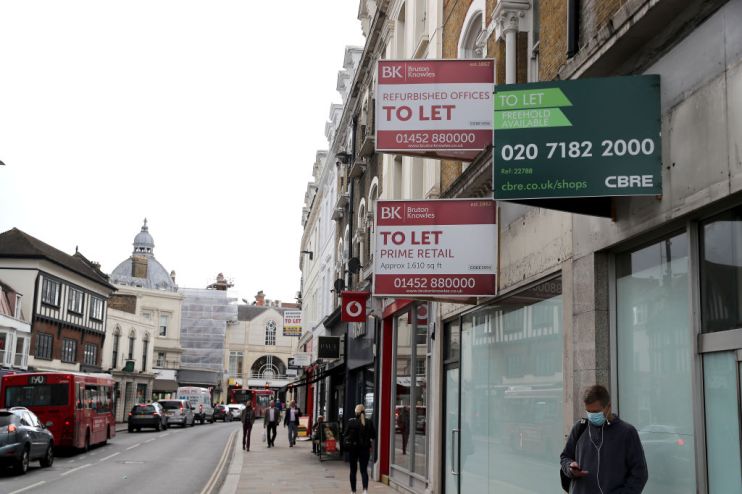Coronavirus: UK economy slumped by a fifth in second quarter

The UK economy suffered a record-breaking collapse in the second quarter, slumping 19.8 per cent as the coronavirus pandemic hammered demand and left swathes of the economy unable to operate.
Gross domestic product shrank by 19.8 per cent in between April and June, the Office for National Statistics said, slightly less than the initial 20.4 per cent estimate but still more than any other major advanced economy.
The fall in GDP was the biggest since ONS records began in 1955, with output slumping to its lowest level since 2003. Britain’s economy had already shrunk 2.5 per cent in the first quarter.
The ONS said that the UK’s economy shrank more in the first half of 2020 than any other G7 nation.
Output has rebounded in recent months but the recovery looks to be fading with rising coronavirus cases and forecasts of a jump in unemployment as the government scales back job support.
“The bulk of the pain of the second quarter’s slump in GDP had been borne by the government rather than households and businesses,” said Capital Economics’ Ruth Gregory.
“But with the recovery already flattening off, fiscal support fading and the full scale of the fallout in unemployment yet to be felt, that will change in the second half of 2020,” she added.
Households saved a record 29.1 per cent of their income in the three months to June, the data showed, compared to 9.6 per cent in the first quarter.
The increase in savings came as consumers were unable to spend in many shops and restaurants during the lockdown, while many incomes were supported by the furlough scheme, which comes to an end next month.
“Of course, all this backward-looking news is less important than the timelier data which has suggested the rapid rebound phase has already come to an end in September,” said Gregory.
“The renewed Covid-19 restrictions will probably mean that GDP stagnates in the fourth quarter, leaving economic activity marooned 5.5 per cent short of its pre-crisis level. And the risk now is that renewed containment measures send the recovery into reverse.”